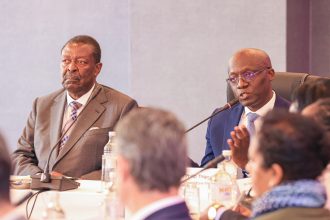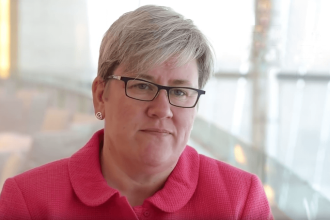By Henry Neondo
A panel of climate and development experts on Thursday called for urgent investments in adaptation strategies to address the escalating global challenges of land degradation and climate change. The discussion highlighted the critical need for community-driven solutions, technical capacity building, and policy engagement to mitigate the devastating impacts of environmental change, particularly in fragile and conflict-affected regions.
Up to 90% of drylands worldwide face the risk of degradation, with Southern Europe, parts of the United States, and Asia also significantly affected. Speakers emphasized how climate change exacerbates these challenges, intensifying extreme weather events like floods and droughts.
Hassan Yasin, co-founder and executive director, of Somalia Greenpeace Association (SOGPA), cited a World Bank report, to say that 80% of Somalia’s land is degraded, driving displacement, poverty, and conflict. Over 2.7 million Somalis have been displaced by drought, with many forced into precarious conditions that increase recruitment into armed groups.
Rethinking Climate-Conflict Narratives
Aaron Kaplan from Tufts University cautioned against oversimplifying climate change as a primary driver of conflict. Instead, he pointed to issues such as inequitable land tenure and societal inequalities as underlying causes.
“In Kenya, for example, the challenges pastoralists face are more about land conversion than climate alone,” Kaplan argued. His stance was echoed by Craig Sebastien, who noted that conflicts often have multiple drivers and that framing them solely as “climate-induced” overshadows critical social and political factors.
The Case for Transformational Adaptation
Speakers agreed that current incremental adaptation efforts are insufficient to address the scale of the challenges. Transformational adaptation—systemic changes that go beyond marginal adjustments—was proposed as the way forward. Kaplan emphasized the need to align adaptation strategies with local realities, sharing examples of failed projects that lacked community engagement.
“Adaptation must be rooted in the lived experiences of those affected,” Yasin added, underscoring the importance of early community involvement in identifying sustainable solutions. Both speakers highlighted the necessity of blending local knowledge with scientific research to ensure solutions are context-specific and actionable.
Bridging the Gap Between Research and Action
Despite a wealth of research on land degradation and climate impacts, implementation gaps persist. Yasin identified technical capacity and financial shortfalls as significant barriers. “Local communities often lack the resources to implement sustainable practices, leaving them vulnerable to further degradation and displacement,” he noted.
To overcome these barriers, panelists called for robust financial mechanisms and stronger government accountability. Kaplan suggested the use of simulation exercises and wargaming to mobilize political will and prepare for future disasters.
A Call to Action
The discussion concluded with a series of actionable recommendations that included increased investments in climate adaptation, especially in regions facing conflict and fragility, need to center local knowledge and community voices in decision-making processes and establishing financial mechanisms to support community-led adaptation initiatives.
The experts further asked for technical capacity-building for communities to implement sustainable practices, and engaging policymakers through innovative tools like simulations to enhance preparedness.
As land degradation and climate change continue to intersect with socioeconomic challenges, the experts underscored the urgency of a collaborative, rights-based approach to building resilience.
The discussions took place two weeks ahead of the 16th Conference of Parties to the UN Convention to Combat Desertification (UNCCD) set for Riyadh, Saudi Arabia.
“The time for action is now,” Yasin said, calling on stakeholders to bridge the gap between research and real-world solutions.




